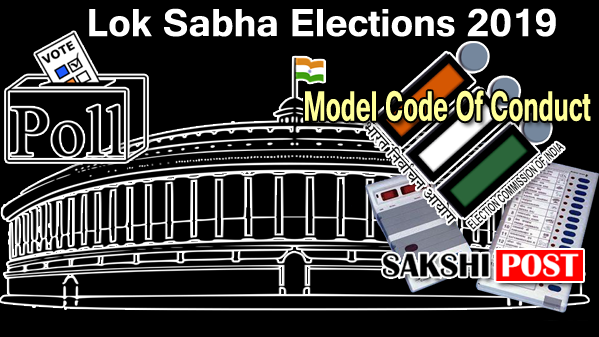Election Model Code Of Conduct: Dos and Don’ts For Political Parties in Fray

The Election Commission on March 10 announced the dates for the much awaited 2019 Lok Sabha Elections. The Chief Election Commissioner of India Sunil Arora stated in no uncertain terms that the Model Code of Conduct would come into effect with immediate effect and sought the cooperation of poll officers and political parties to strictly adhere to it.
Now, what is Model Code Of Conduct?
The Model Code of Conduct is a bunch of guidelines issued by the Election Commission (EC) to ensure free and fair conduct of elections. This will be in place till the announcement of election results.
The Election Commission holds the authority to keep a check on the poll bound states, political parties and candidates as per Article 324 of the Constitution.
What are the provisions under the Model Code of Conduct?
There are certain mandatory provisions under the Model Code Of Conduct. They include the following...
1. General Conduct: Political parties cannot use caste or religious sentiments to woo voters. Candidates are however allowed to take pot shots at their opponents' track record, work, performance, policies etc. Also, it is against the provision of the Model Code Of Conduct to offer bribes to gain votes. Voters cannot be intimidated too.
2. Meetings: Political leaders have to seek prior permission from the police to conduct political campaigns and rallies. They have to give them enough time to provide required security for the event.
3. Processions: Road shows should be planned in such a way that the routes of opponents are different. Besides, burning effigies of politics opponents amounts to violation of Model Code Of Conduct.
4. Polling Day: It is mandatory for party workers and volunteers to sport a badge with party name and symbol.
5. Polling Booths: Only with those with EC nod can enter the polling booths other than the voters. On the day of voting parties cannot campaign for votes that falls in the radius of 100 metres from the polling booth
6. Observers: EC appointed observers can be approached by candidates who are dissatisfied with the conduct of elections.
Interestingly, a case cannot be filed under any clause of the code itself if any person/party breaches the Model Code of Conduct. However, the EC can file a case under relevant sections of the IPC , CrPC and the Income Tax Act, if a political party or a candidate violates the Model Code of Conduct.
Restrictions for Ruling party under Model Code of Conduct
1. The ruling party cannot monopolise public places of campaigning because of its power. Every party must be given a fair chance to campaign at the place of their choice.
2. The ruling party cannot use official media for publicity neither can it us republic exchequer to advertise
3. No minister or MP can use government machinery for political campaigns. The candidate is also not allowed to carry out political campaigns on official trips
4. No announcement of financial aid or developmental projects can be made by ministers or authorities







Also Read: How To Check Your Name In Electoral Voter List- A Sakshi Initiative




